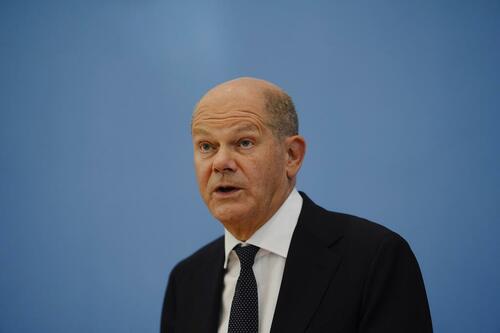By Thomas Brooke of Remix News
Germany’s collapsing government has responded to Elon Musk calling Chancellor Olaf Scholz a “fool” by claiming that the tech billionaire’s X platform has become a place for extremists.
Musk commented on the news that the traffic light coalition in Berlin was faltering following the dismissal of Christian Lindner, leader of the co-governing FDP, from the finance ministry, by writing in German, “Olaf ist ein Narr” (Olaf is a Fool).
Olaf ist ein Narr https://t.co/Yye3DIeA17
— Elon Musk (@elonmusk) November 7, 2024
Deputy government spokeswoman Christiane Hoffmann attempted to brush off Musk’s comment, claiming, “There is freedom for fools on X.”
She, however, justified the federal government’s continued presence on the social media site despite claiming it is “increasingly offering extremists a platform,” by claiming that social media is “an important means for the federal government to explain and communicate its work.”
Her response, though, has only drawn more attention to the government’s unsuccessful approach to Germany’s severe economic challenges.
Scholz is facing a wave of criticism over his handling of the economy and mounting government gridlock. His abrupt firing of FinMin Lindner signaled the collapse of a coalition already struggling to manage, with all three parties plummeting in the national polls to the benefit of the center-right CDU/CSU and nationalist Alternative for Germany (AfD).
And yet, while the coalition government seems intent on squabbling among themselves, Musk’s blunt appraisal of Scholz’s leadership echoes the frustration of a growing number of Germans.
Berlin’s inability to stabilize Europe’s largest economy has resulted in soaring energy costs, stagnant growth, and a considerable decline in its competitiveness with the likes of China.
The German automotive sector is in the process of cutting thousands of jobs as it grapples with a global shift toward electric vehicles — a transformation Musk himself has been at the forefront of.
The economic crisis is having a knock-on effect throughout the country, with Remix News reporting this week that bankruptcies have soared to their highest level in 20 years.
A total of 1,530 individuals and corporations filed for bankruptcies in October, 17 percent more than last month, according to research from the Leibniz Institute for Economic Research Halle (IWH).
Similarly, German industrial orders fell 5.8 percent in August compared to July, it was reported last month. The slump is far higher than the 2 percent drop anticipated, with economists now warning of a recession and doubting a quick recovery.
In September, a survey by the Ifo Institute revealed that the German economy is expected to shrink by 0.1 percent in 2024, following a 0.3 percent contraction last year, while business sentiment worsened for the fourth consecutive month and business activity contracted at its fastest rate in seven months.
Despite the political chaos, Scholz appears reluctant to act immediately with reports suggesting he could call a vote of no confidence in the new year paving the way for new elections possibly by March, a time when Donald Trump will already be back in the White House and implementing his ‘America First’ policies many believe will be to the further detriment of the German economy.
Opposition politicians in Germany are demanding decisive action with the AfD’s Bernd Baumann calling for “immediate new elections,” citing the latest results of the Politbarometer which revealed that 84 percent of Germans support this move.
Continue reading at Remix News.
